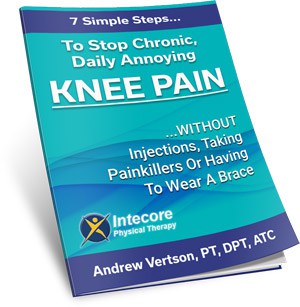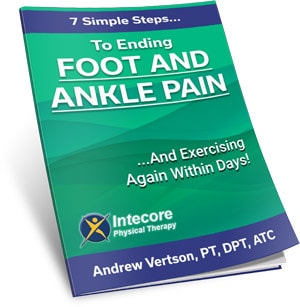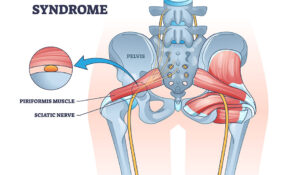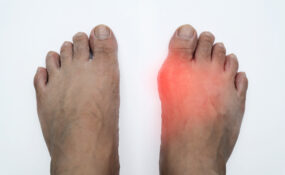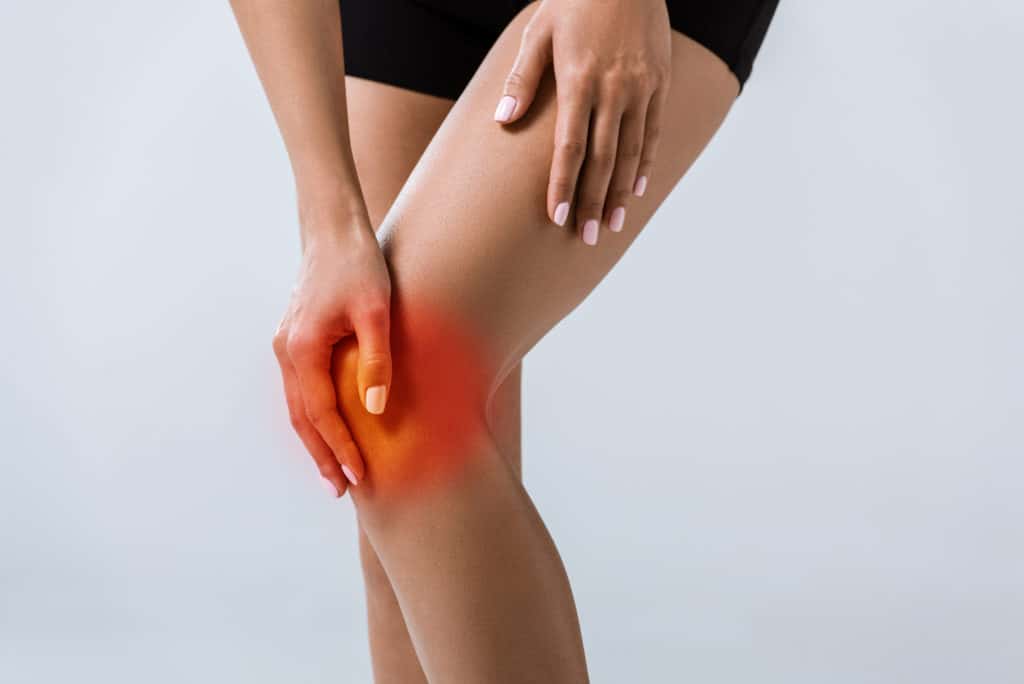
Are you booked in for posterior cruciate ligament surgery?
You’ve come to the right place. We specialize in PCL surgery rehab.
The posterior cruciate ligament (PCL) is a ligament that links the lower and the upper leg. Compared to the Anterior Cruciate Ligament (ACL), the posterior cruciate ligament (PCL) is larger and stronger.
Despite this, there still is the possibility of injuring the posterior cruciate ligament to the point where it requires full reconstruction surgery.
If you injure your posterior cruciate ligament, you will experience swelling and pain, among other symptoms.
Depending on the severity of the injury and whether the ligament is torn or just sprained, the treatment could be surgical or non-surgical.
Unfortunately, the cruciate ligaments do not repair themselves after a tear. That’s why they require reconstruction surgery.
More Blogs From Intecore
Flat Feet: How Can Physical Therapy Help?
Tennis Elbow: What You Need To Know
Is My Chest Pain Serious And What Help Can I Get?
Posterior Cruciate Ligament Injury
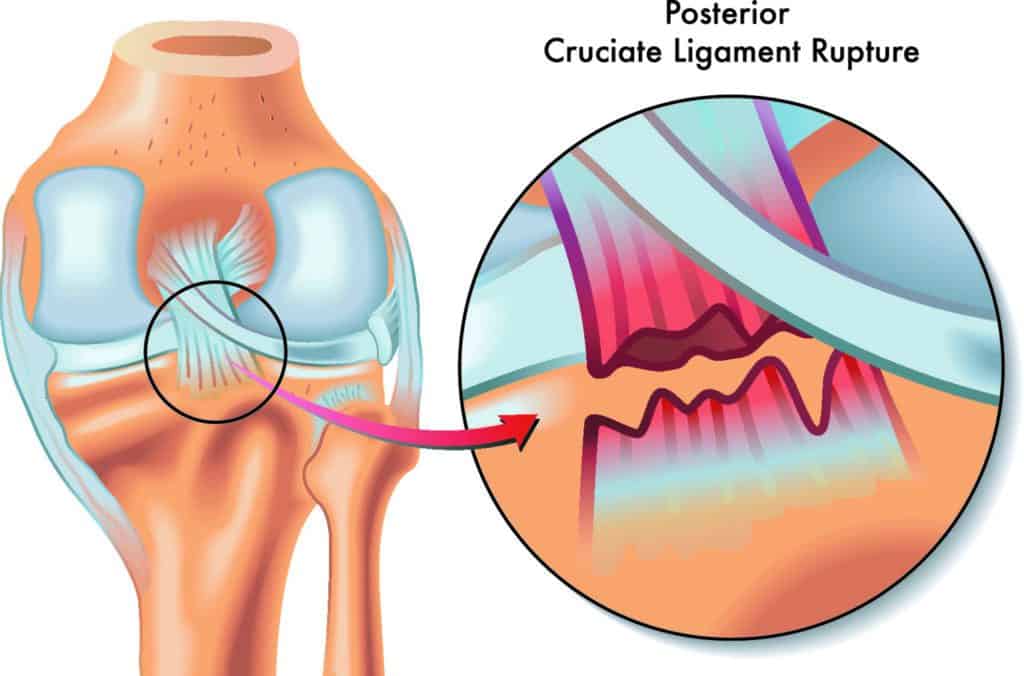
The posterior cruciate ligament extends on the back of the knee and helps to connect your lower leg bone top to the thigh bone. The ligament assists in keeping the bones in the correct position and the knee operating smoothly. If the posterior cruciate ligament gets torn or sprained, we refer to it as a PCL injury.
Who is prone to posterior cruciate ligament injuries?
While PCL injuries can occur in anyone, they are more common among people who lead an active lifestyle, like sportsmen and women, e.g., football, soccer, baseball payers, athletes, and skiers.
Are PCL injuries common?
Compared to anterior cruciate ligament tears (ACL), PCL injuries are far less common, with the latter comprising around 20% of ligament injuries to the knees. Furthermore, in most cases, a PCL injury will happen in conjunction with another ligament injury, with only PCL tears being quite uncommon.
What is the impact of a PCL injury on a body?
In terms of injury, a posterior cruciate ligament injury may be mild, severe, or moderate, and we grade them into four kinds of injuries:
- Grade I: This occurs if there is a partial tear in the ligament.
- Grade II: In this type of injury, the ligament becomes loose and develops a partial tear.
- Grade III: Grade III PCL injuries happen when the ligament is entirely torn and causes knee instability.
- Grade IV: In this category, the PCL develops an injury alongside another ligament of the knee suffering damage.
The symptoms of posterior cruciate ligament injuries can be short-lived if the injury is mild. Still, ligament tears that require reconstruction require an extended period of rest and rehabilitation.
Is it possible to walk with an injured PCL?
Whether you can walk with a PCL injury depends on the severity and grade of the injury. If it is mild, you’re likely to be able to walk and have less pronounced symptoms. However, in other more serious and higher-grade injuries, most patients cannot walk without severe pain and instability, nor is it recommended.
Is a PCL injury painful?
Yes, in most cases, posterior cruciate ligament injuries are painful, with pain being one of the most noticeable symptoms of a ruptured PCL. But depending on the severity, the pain can range from mild to severe in intensity.
What Causes Posterior Cruciate (PCL) Injury?
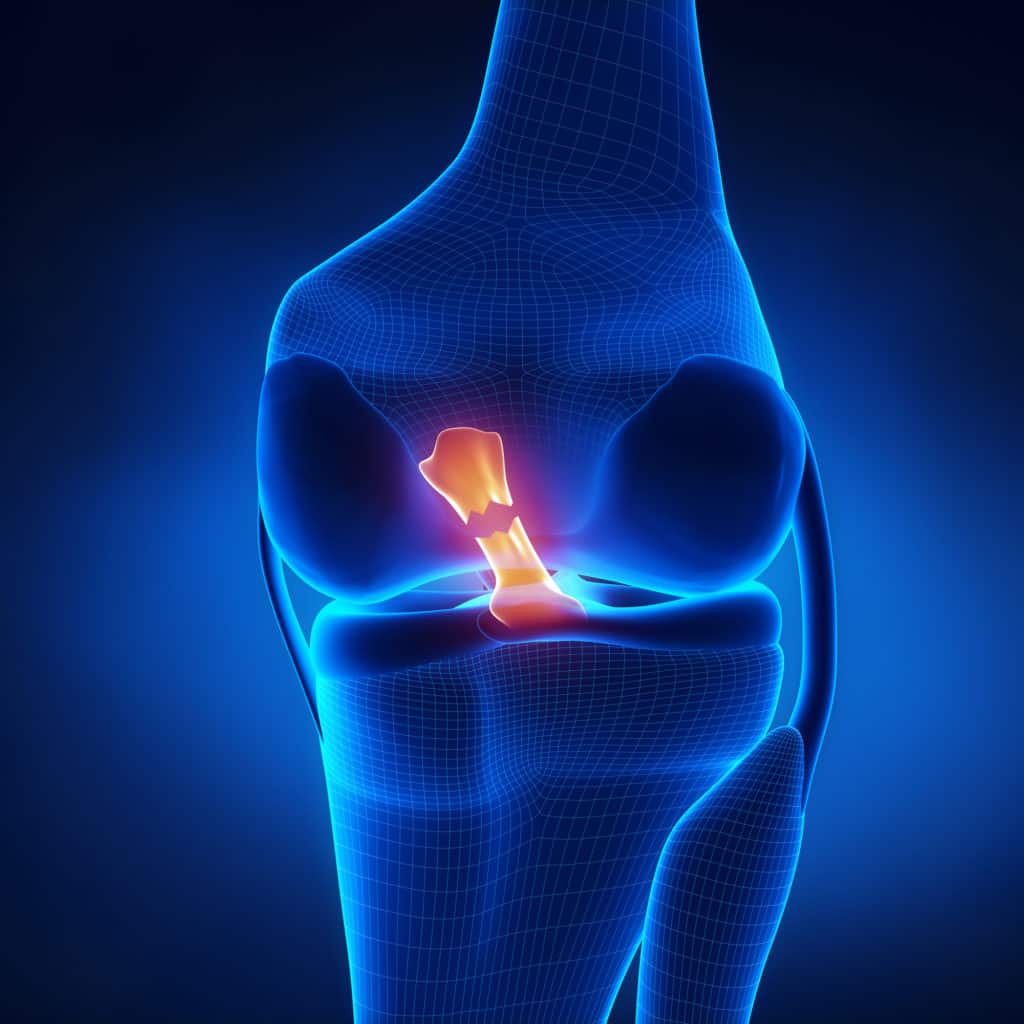
In most cases, a PCL injury will only happen in the case of severe trauma to the knee, which could occur because of the following:
- The knee is bent backward with force
- You fall with the knee bent
- You get a strong blow on the front of the knee, like bashing your knee against a hard surface
- You land incorrectly after jumping
- The knee is dislocated
What Are The Symptoms Of A Posterior Cruciate Ligament Injury?
When patients come to the clinic with a PCL injury, they have varying symptoms, but the most common ones we see are:
- Instability in the affected knee
- Inflammation and swelling
- Pain that increases over time
- Having issues while walking
- Having difficulty descending stairs
- Stiffness in the knee joint
Diagnosing a PCL injury
To determine whether your posterior cruciate ligament or something else is causing your symptoms, we conduct a thorough examination of your knee, including an analysis of your range of motion and the symptoms you are experiencing.
In some cases, we may also recommend different imaging tests like CT scans, an MRI, or X-rays to analyze the extent of the damage. Unfortunately, Grade III+ PCL injuries are one of the rare occasions where physical therapy cannot prevent you from needing surgery to fix the issue.
How We Treat Posterior Cruciate Ligament (PCL) Injuries

Physical therapy is one of the best ways to treat mild PCL injuries, rehab the knee joint, and restrengthen the knee after PCL surgery. The exact treatment protocol we use is subject to the grade and severity of your PCL injury and concurrent injuries. But treatment may include the following:
- Wearing a knee brace: To deal with knee instability, you may need to wear a brace to stabilize the joint and prevent further damage. Directly after surgery, your surgeon may also recommend that you keep your knee completely straight for several weeks using a slightly different device.
- Crutches: To limit how much weight you put through the knee before and after surgery or while recovering from a mild PCL injury, we recommend crutches to give the knee some time to heal. Don’t stop using them until your surgeon/physical therapist agrees because you could do irreversible damage to your knee joint and the all-important ligaments and tendons.
- Surgery: As we mentioned, surgery is only usually required for PCL tears and severe injury. But it’s one of the conditions where surgery can’t be avoided. In cases where surgery is required, keyhole surgery is used to fix the ligament. It is one of the more non-invasive methods of surgical treatment. But it’s quite a big surgery and requires good rehab to restore normal knee function.
Will there be any issues post-PCL surgery?
The chances of complications are limited after surgery, although a few risks are related to knee surgery, such as:
- Swelling and infection
- Blood clots or bleeding
- Stiffness in the knee joint accompanied by swel
You should contact your surgical team if you have any of these symptoms.
How long does a PCL injury take to heal?
The recovery period differs from person to person, with mild cases taking around a fortnight to heal. However, if you need surgery to repair the ligament it may take 6-9 months to completely recover. Physical therapy can help speed up recovery and improve knee mobility and function. In addition, evidence suggests that physical therapy can help prevent arthritis in the knee, which is a risk factor after knee surgery.
Can I treat a PCL injury at home?
If you have a mild PCL injury (although that is very difficult to diagnose without the help of a physical therapist), there are some steps you can take at home to help with mild symptoms and promote the natural healing process, including:
- Rest: For the first few days, do not undertake any activity or movement that moves the knee or causes stress.
- Ice: Use a cold compress daily, four times a day, for 15 minutes each.
- Compression: The most effective way to prevent swelling in the knee joint is to wrap it tightly with an elastic bandage.
- Elevation: Always keep the knee elevated using a pillow as a prop.
How To Prevent Posterior Cruciate Ligament (PCL) Injuries

While it’s challenging to be able to prevent any kind of PCL injury, there are ways to minimize the risk factors, including:
- Adopting the right technique when running or walking. We can guide you on this aspect of PCL injury prevention.
- Always do some stretching exercises before any kind of physical activity.
- Try to remain cautious of your knees when playing any contact sport and/or wear knee protection or a stabilizing brace.
The good news is that even if you have a Grade III+ PCL injury, the prognosis is good, and you can and will play sports again if that’s what you want to do. You just need to make sure that you have the support of an experienced physical therapist to help with the rehab process and speed up your recovery.
Intecore Physical Therapy specializes in Accelerated Cruciate Ligament (ACL) reconstruction, Posterior Cruciate Ligament (PCL) Reconstruction, and Patellofemoral Dysfunction, as well as many other orthopedic injuries.
We’re an outpatient orthopedic and sports medicine rehabilitation center providing the highest quality physical therapy care for patients with posterior cruciate ligament (PCL) injuries and other associated knee issues.
We provide pre-operative, post-operative, and non-operative physical therapy for PCL injuries that occur because of workplace injuries and overuse, vehicle accidents, sporting injuries, and other leg traumas.
- Sciatica or Piriformis Syndrome? 3 Ways to Tell the Difference (Self-Test Guide) - December 22, 2025
- What Is Gout? Why It Happens and What You Can Do About It - November 17, 2025
- 3 Essential Back-Saving Tips You MUST Know Before Any Workout - November 14, 2025




